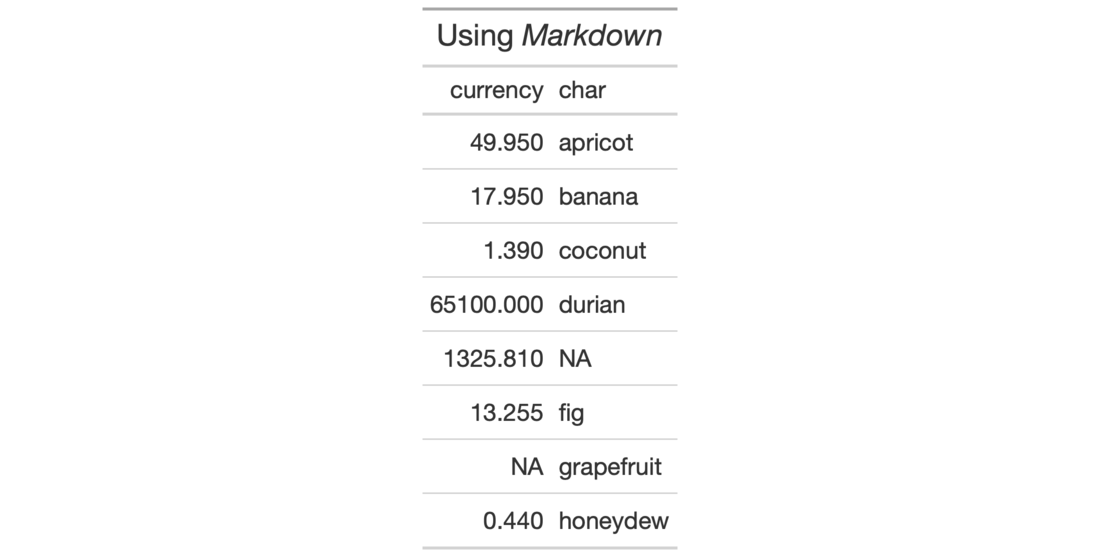Markdown! It's a wonderful thing. We can use it in certain places (e.g.,
footnotes, source notes, the table title, etc.) and expect it to render to
HTML as Markdown does. There is the html() helper that allows you to ferry
in HTML but this function md()... it's almost like a two-for-one deal (you
get to use Markdown plus any HTML fragments at the same time).
md(text)
Arguments
| text | The text that is understood to contain Markdown formatting. |
|---|
Value
A character object of class from_markdown. It's tagged as being
Markdown text and it will undergo conversion to HTML.
Figures

Function ID
7-1
See also
Other Helper Functions:
adjust_luminance(),
cell_borders(),
cell_fill(),
cell_text(),
cells_body(),
cells_column_labels(),
cells_column_spanners(),
cells_grand_summary(),
cells_row_groups(),
cells_stubhead(),
cells_stub(),
cells_summary(),
cells_title(),
currency(),
default_fonts(),
escape_latex(),
google_font(),
gt_latex_dependencies(),
html(),
pct(),
px(),
random_id()
Examples
# Use `exibble` to create a gt table; # when adding a title, use the `md()` # helper to use Markdown formatting tab_1 <- exibble %>% dplyr::select(currency, char) %>% gt() %>% tab_header( title = md("Using *Markdown*"))